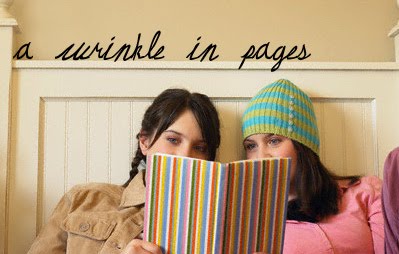
between shades of grey
ruta sepetys
read: february 2012
recommendation: historically important, so read it! ;)
This book came to be highly recommended - not only was it short listed for a bunch of awards, but it's about a girl being shipped off to Sibera during the Second World War. Right up my alley, I thought. However, I had a difficult time with it. I kept waiting for something MORE.
I think this book would have been much stronger without the little flashbacks.
That said, it would take almost half the book away.
In a sense, I felt like this book was trying to be too much at once - The Diary of Anne Frank, The Boy in the Striped Pajamas and something about Russian/Lithuanian history all at once. The story was interesting and strong enough on its own. And really, I wanted to know more about why the north pole! What were they doing up there? I never got a good answer.
The writing is strong and clear, just like Lina, who is a character you can relate to. I liked her relationship with her brother, and her mother, and her drawings. I just wanted more - of those characters, of the relationship, of the time, of the story itself. I felt like we had glimpses, and I am sometimes very greedy. It is a strong story, with heart and sorrow and hope, and that is very reflective of the reality of the time.
I guess also some of it felt heavy handed and scripted (the bald man, anyone? Am I the only one that saw that from his introduction?) but. You also have to remember that I have a very strong stomach for death and violence in writing (reading these things as primary sources will do that to a person) so that didn't hit me in the same way it seems to have hit a lot of people. Sometimes I think you read one book about prisoners on a train and you've read them all. This book had potential to be different though, because of the setting and the different circumstances and Stalin, not Hitler. I do think it lost a little of its specialness by not fully exploring those differences. Also, it's important to remember I studied this stuff for years, so I am once again, biased.
It tells a very important story that a lot of people haven't even thought of before, and for that alone, it deserves its accolades. Read it if you don't know anything about the non-German side of the war, and read it because it exists, and books like this should to be read, even if you find yourself wanting more. It's an easy read in terms of comprehension and the quality of writing, not so easy if you aren't used to reading books about horrible situations, fairly graphic scenes of violence and death, and what war can do to people and families and so called friends. Then again, that IS war, so it's high time we start recognizing it for what it is.





